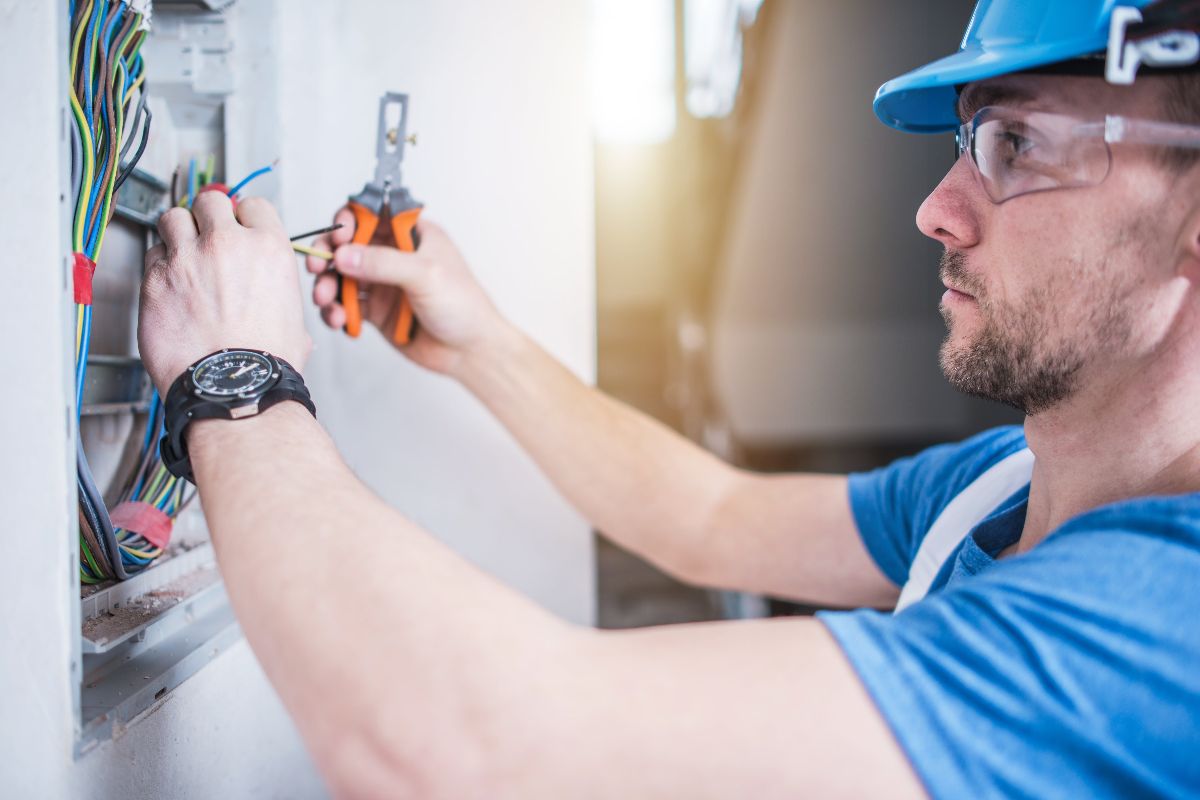
Commercial electrical installation is essential for providing businesses, industries, and establishments with the energy they require to run effectively. The main facets of electrical installation are examined in this article, with a focus on their relevance, constituent parts, safety issues, and the value of specialist knowledge.
Importance
Almost every facet of modern company operations is powered by electricity, which is the lifeblood of the modern corporate environment. The energy required for lighting, heating, cooling, ventilation, equipment operation, and communication systems is provided by a dependable and well-planned electrical installation. Additionally, it helps to create a favorable workplace climate that increases worker productivity and customer happiness.
Components
Electrical installation at the commercial level consists of a number of parts that operate flawlessly to produce power. These elements consist of:
Panels used for distribution
These panels act as the hub from which electricity is sent to numerous circuits all around the building. They include fuses or circuit breakers that guard the system against overloads and short circuits.
Wiring and Cabling
For the safe and efficient transmission of power, proper wiring and cabling are required. For certain uses, such as power cables for large loads and data cables for communication systems, many types of cables are employed.
Switches and outlets
Users can manage the flow of power to various rooms and equipment inside a building by using switches and outlets. They are positioned for easy access at a strategic location.
Lighting Systems
Both practicality and aesthetics need for appropriate lighting in commercial settings. The electrical system incorporates lighting fixtures, switches, and dimmers to deliver sufficient illumination.
HVAC system
Heating, ventilation, and air conditioning systems rely on electricity to control indoor temperatures and keep inhabitants comfortable.
Safety devices
Emergency lights, smoke detectors, and fire alarms are essential for protecting the safety of inhabitants in case of an emergency.
Considerations for safety
Any electrical installation must be safe, but this is especially true in commercial situations where there are many people around. To avoid mishaps, fires, and electrical problems, safety laws, and regulations must be followed. Important safety factors include:
Proper grounding
Proper grounding minimizes the danger of electrical shocks and equipment damage by ensuring that surplus electrical energy is securely routed into the earth.
Need of the right commercial electricians
For electrical systems in commercial settings to operate properly and safely, commercial electricians are essential. Their skills include complicated electrical system design, installation, upkeep, and repair. These systems power a variety of processes. Commercial Electricians in Essex are familiar with the nuances of commercial wiring, machinery, and laws, ensuring that installations are legal, effective, and secure. Commercial electricians support company continuity and staff well-being in addition to preventing electrical dangers and downtime. Businesses must rely on them to maintain and troubleshoot electrical systems in order to run efficiently, reduce downtime, and increase production.
How commercial and local electricians are different
Commercial electricians are experts in large-scale projects requiring intricate electrical systems in commercial and industrial environments. Local electricians concentrate on domestic work, handling easier systems, and meeting the demands of homeowners.
Commercial electricians
Work Environment:
Commercial electricians focus on more involved electrical projects that are often found in industrial and commercial environments, including office buildings, factories, stores, and hospitals.
Complexity:
They work with more intricate electrical systems, such as high-voltage systems, three-phase electricity, and specialized machinery needed by commercial and industrial facilities.
Knowledge:
Commercial electricians are knowledgeable about the safety rules, energy-efficient solutions, and commercial building requirements that apply to large-scale projects.
Skills:
They are skilled at designing, setting up, and maintaining large electrical networks, which include lights, HVAC systems, equipment, data centers, and lighting.
Teamwork:
To guarantee the smooth integration of electrical systems into the overall building design, commercial projects frequently necessitate collaboration between architects, engineers, and builders.
Local electricians
Work scope:
Residential electrical work, such as that for houses, apartments, and modest projects, is often handled by neighborhood electricians.
Simplicity:
As opposed to commercial electricians, they work with less complicated electrical systems, concentrating on regular wiring, outlets, and lighting fixtures.
Knowledge:
They are knowledgeable about domestic electrical laws and regulations as well as how to handle typical electrical problems in homes.
Competencies:
Local electricians are the best at restoring, updating, and installing the circuit breakers, wiring, and appliances that make up a home’s electrical system.
Customer interaction:
They frequently speak with homeowners directly and are adept at describing electrical problems in layman’s terms.


